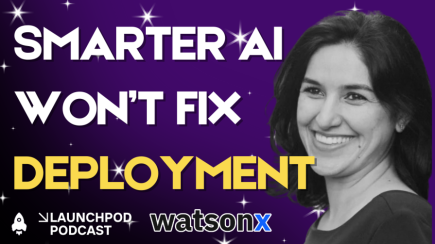Editor’s note: This article was last updated on 28 June 2023 to add more product management courses to the list and updated details around their curricula, pricing options, and duration.

Product management is so hot right now. With ever-increasing competition in the market, more and more companies are embracing truly product-focused approaches. A decade ago or so, you could get by just adding features at random and seeing what sticks. Nowadays, proper product strategy is a must.
This has led to a rise in demand for product managers. Almost every product-led company needs one, and the promise of getting into the IT industry with a prestigious job title, competitive salary, and “no technical knowledge” is tempting for many.
As a result, the market is oversaturated with product management courses, boot camps, and certification programs — all of which seem to promise that if you pay a mere few thousand dollars, you will earn a $200k-per-year salary in no time.
All this buzz around product management makes it hard to distinguish courses and programs that are truly worth your time and money — ones that will grow your skill exponentially — from the ones that are just a waste of time. Luckily, we dug through dozens of PM courses so you don’t have to.
In this section, we’ll explore some of the best online courses available for aspiring or current product managers looking to upskill. These platforms offer comprehensive curriculums covering various aspects of product management from ideation to user testing and analytics.
Coursera offers a comprehensive Software Product Management Specialization that covers key aspects of the field, such as ideation, market research, prototyping, user testing, analytics, pricing strategies, and more.
If you’re looking for something a bit more tailored, Coursera also offers specialized courses in digital product management, real-world product management, AI product management, and more.
Udemy’s Become a Product Manager course bills itself as “the most complete course available on product management.” Participants will learn about the various hats a product manager must wear, the ins and outs of the product lifecycle, how to prioritize the most impactful ideas and features, and much, much more.
Teresa Torress is a leading authority when it comes to discovery. She has popularized the term “continuous discovery” and is the creator of the opportunity solution tree concept — one of the most respected discovery frameworks.
Her master class on continuous discovery habits serves as a cohesive introduction to mature discovery processes. And if you prefer a deep dive into a more specialized area, you can choose from five deep-dive cohorts:
All training courses are led directly by Torres.
“Build a foundational understanding of the product manager role, and learn the tools required to succeed as a product manager.”
If I was to point to one best source of knowledge for product managers, I wouldn’t have to think FOR long. Reforge has a great blog, membership perks, and cohort-based programs.
Product Management Foundations is a course that teaches you everything you need to start thinking like a PM, from identifying opportunities to designing features, developing features, launching the product, and learning from it.
However, to get the most out of Reforge’s course, you should have at least some basic understanding of product management before signing up (reading a handful of books should do the job).
Dave Wang, aka Product Dave, is an experienced product manager, currently working as a group product manager for Linktree.
Wang offers two courses that, together, offer a comprehensive overview of product management practice in a series of pre-recorded video lessons and quizzes.
Although it’s an entry-level program, it doesn’t shy away from scraping the surface on more advanced topics, which is great for showing potential course participants what they might expect in their PM careers.
For those who prefer traditional educational institutions, this section will cover top-notch university-affiliated programs. These programs offer rigorous curriculums taught by experienced faculty members, and often provide opportunities for networking with fellow students who may be future colleagues or collaborators in industry.
Stanford’s Fundamentals of Product Management is an ideal course for beginners looking to explore what it takes to become a successful PM. This hands-on program covers the core skills required throughout the product lifecycle, including how to generate ideas, validate opportunities, and conduct customer interviews.
Boston University offers a MicroMasters Program in Digital Product Management that focuses on digital products’ unique challenges and opportunities across industries such as technology startups or established organizations undergoing digital transformation.
For those preferring an intense, schedule-bound learning experience, this section covers top boot camp-style offerings. These are immersive, instructor-led programs designed impart hands-on skills within short span time. They often include live projects, career coaching services, and robust alumni networks support career advancement post-completion program.
The Product Manager Certification (PMC) by Product School is an ideal starting point for those aiming to become product managers. Taught by experienced product leaders from renowned companies such as Google, Meta, and Netflix, this program focuses on providing practical, product-focused skills and networking opportunities.
Participants engage in live online sessions with their instructors, using real-world PM tools to build products and solve problems.
BrainStation is a provider of tech-related boot camps and courses. If you need a strict schedule and commitment to go through the initial friction of learning a brand new skill, then BrainStation is your pick.
The course is reasonably priced (for a boot camp), offers live sessions, and doesn’t try to teach you everything at once. Be warned, though: you will NOT get a product management job just because you completed a boot camp.
A product manager doesn’t need to have technical skills, but technical skills make the job much easier.
If you want to understand better how the sausage is made, try out these courses.
If you haven’t worked in the tech industry before or see your tech skills lacking, ProductHQ has you covered. The Technical Product Manager course strikes a perfect balance between going deep enough for you to understand technical concepts without overwhelming you too much with engineering details.
Google’s UX Design Professional course is one of the best UX courses around. It teaches the basics of UX, tackles often neglected topics such as accessibility and inclusions, and prompts you to deliver three fully-fledged portfolio projects.
Although it has UX in the name, it also teaches user interface (UI) basics. It’s a comprehensive deep dive with tons of practical exercises.
If you’d like to understand the job of your data analyst better, or you don’t have one and need to wear that hat, try Google’s Data Analytics Professional course.
All product-led organizations are flush with data, whether they’re making the most of it or not. This course is designed to help you generate actionable insights from the data you already have.
While the paid courses described above are highlight valuable to aspiring and practicing PMs alike, don’t underestimate the power of free resources.
Google Primer is a free mobile app that offers short, easy-to-understand lessons covering a wide range of topics related to product management, such as market research, user experience design, and agile development.
While not specifically focused on product management, Khan Academy offers free online courses that can help you build foundational knowledge in areas like business strategy, economics, and operations.
There are dozens of product management conferences held every year, and it would take an actual ebook to write about them all.
That said, there are three big product management conferences that every seasoned PM should know about.
Mind the Product organizes events worldwide where product managers can attend talks by industry leaders, participate in interactive workshops, and network with other professionals, and is one of the first global communities for product managers. Makes sense, then, that it went on to establish one of the first product conferences, #mtpcon.
Past speakers include world-renowned product evangelists like Marty Cagan and Teresa Torres, so you know you won’t be disappointed.
The Mind the Product conferences are usually two or three days long and are hosted two to three times a year, both in Europe and in the US. The price per ticket is roughly $800.
Similarly to ProductCon, you can also attend the conference online.
Hosted by Product School, ProductCon is one of the largest conferences for product managers in the world.
The conference is sponsored by renowned brands such as Amplitude, Miro, and Airtable. During the conference, you can learn from PMs at top-notch companies, such as Google, BlaBlaCar, and Booking.com, to name just a few.
This day-long conference happens four times a year. Since it’s only one day long, prices are relatively low: around $400 per ticket.
But the best part is that everyone can join virtually for free. (Pro tip: if you join virtually, use a separate email address because you’ll be signed up to numerous mailing lists).
Product-Led Summit is a relatively new, regular, two-day long conference. Although it’s primarily focused on — as the name suggests — product-led growth strategies and practices, it also tackles more general product management topics.
Although smaller conference than #mtpcon and #ProductCon, Product-Led Summit is easily a top-3 product management conference when it comes to relevance and content quality. However, it also comes with one of the more expensive price tags, averaging $1,000 per ticket.
Also, while #ProductCon and #mptcon have a very strict, invitation-only product lineup, Product-Led Summits accept external speaker applications. So if you feel you have something you want to share with the world, you can submit your pitch there!
Continuous learning is a must for any PM worth their salt. Specialized courses and certifications can help you stay ahead of the curve, providing you with the knowledge and skills to excel in your role. Whether you’re new to the field or an experienced professional looking to brush up on the latest methodologies, these courses offer comprehensive training tailored to your needs.
The Professional Scrum Foundations (PSF) certification by Scrum.org is aimed at individuals who want to build a strong foundation in scrum and agile principles. It is suitable for team members, managers, and anyone involved in agile projects or planning to adopt scrum.
The course covers scrum theory, roles, events, and artifacts, allowing participants to understand and apply scrum practices effectively. The interactive course also includes team-based exercises and simulations, providing hands-on experience in a real-world context.
The PSF certification is a stepping stone toward more advanced scrum certifications and sets candidates apart in the competitive job market.
IDEO U’s Design Thinking course is designed to teach product managers how to apply human-centered design principles in their work. It covers ideation and validation techniques, rapid prototyping, and other methods to help PMs better understand the social, emotional, and physical needs of their customers.
The Agile Certified Product Manager and Product Owner (ACPMPO) certification program is another great course offered by AIPMM. It is designed primarily for product managers and product owners who want to hone their skills in agile methodologies.
This certification will teach you how to successfully manage and inspire agile teams, create and prioritize product backlogs, and adapt to changing market demands.
With a strong focus on real-world application, the ACPMPO certification stands out for its comprehensive approach to agile and its recognition across various industries. Earning this certification demonstrates your proficiency in agile product management and ownership, allowing you to stand out in a competitive job market.
Choosing the right product management course can be a game-changer for your career. However, with so many options available, it can be challenging to decide which one is the best fit for you. Here are some factors to consider when evaluating different courses:
There isn’t a one-size-fits-all course or program for product managers. Some PMs are entry-level and have worked in other roles before, some are still early in their careers, and some are experienced but want to build more knowledge. There are lots of courses out there, but some cater better to these categories than others.
Hopefully, this list of product management courses was helpful in context to whom they’re suited for. If you try any of them or have insight, let me know in the comments!
Featured image source: IconScout

LogRocket identifies friction points in the user experience so you can make informed decisions about product and design changes that must happen to hit your goals.
With LogRocket, you can understand the scope of the issues affecting your product and prioritize the changes that need to be made. LogRocket simplifies workflows by allowing Engineering, Product, UX, and Design teams to work from the same data as you, eliminating any confusion about what needs to be done.
Get your teams on the same page — try LogRocket today.

A practical guide for PMs on using session replay safely. Learn what data to capture, how to mask PII, and balance UX insight with trust.

Maryam Ashoori, VP of Product and Engineering at IBM’s Watsonx platform, talks about the messy reality of enterprise AI deployment.

A product manager’s guide to deciding when automation is enough, when AI adds value, and how to make the tradeoffs intentionally.

How AI reshaped product management in 2025 and what PMs must rethink in 2026 to stay effective in a rapidly changing product landscape.